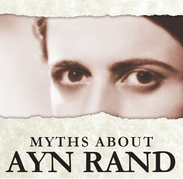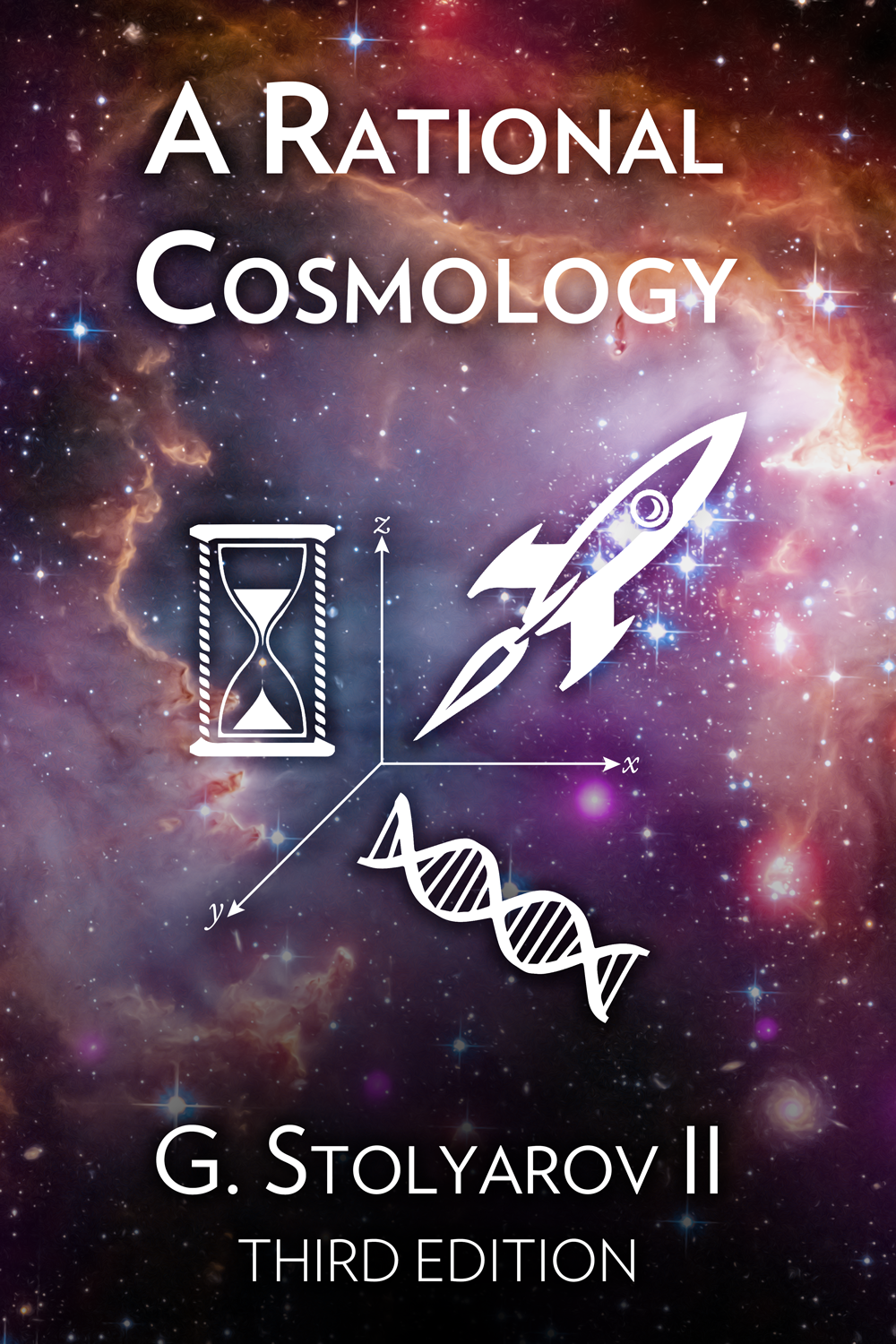Ayn Rand and Friedrich A. Hayek: A Side-by-Side Comparison – Article by Edward W. Younkins
Ayn Rand and Friedrich A. Hayek did more than any other writers in the Twentieth Century to turn intellectual opinion away from statism and toward a free society. Although they are opposed on many philosophical and social issues, they generally agree on the superiority of a free market. Rand’s defense of capitalism differs dramatically from Hayek’s explanation of the extended order. In addition, Hayek approves of state activity that violates Rand’s ideas of rights and freedom. The purpose of this brief essay is to describe, explain, and compare the ideas of these two influential thinkers. To do this, I present and explain an exhibit that provides a side-by-side summary of the differences between Rand and Hayek on a number of issues.
In their early years of writing, both Hayek and Rand were dismissed by intellectuals, but they were heralded by businessmen. Hayek began to gain some respect from intellectuals when he published The Road to Serfdom in 1944. He wrote a number of scholarly books, attained formal academic positions, and earned the Nobel Prize for economics in 1974. Rand never did write scholarly works or hold a formal academic position. Her philosophy must be extracted from her essays and her fiction.
Hayek was read in college classes sooner, and to a much greater extent, than was Rand. He was viewed by intellectuals as a responsible and respected scholar, and Rand was not. His vision of anti-statism was more acceptable to intellectuals because he called for some exceptions to laissez-faire capitalism. In his writings he permitted concessions for some state interventions. In his immense and varied body of work, he touched upon a great many fields, including anthropology, evolutionary biology, cognitive science, philosophy, economics, linguistics, political science, and intellectual history. During the last 25 years or so, Rand’s works have been increasingly studied by scholars. There is now an Ayn Rand Society affiliated with the American Philosophical Association and a scholarly publication devoted to the study of her ideas—The Journal of Ayn Rand Studies. In addition, her writings are now being covered in college classes.
A Summary Comparison
Exhibit I provides a summary comparison of Rand and Hayek based on a variety of factors and dimensions. With respect to metaphysics and epistemology, Rand holds that “A is A” and that reality is knowable. Contrariwise, Hayek argues that reality is unknowable and that what men see are distorted representations or reproductions of objects existing in the world. The skeptic Hayek goes so far as to state that the notion of things in themselves (i.e., the noumenal world) can be dismissed. Whereas Rand’s foundation is reality, the best that Hayek can offer as a foundation is words and language.
Hayek supports the view that the human mind must have a priori categories that are prior to, and responsible for the ability to perceive and interpret the external world. He adds to this Kantian view by making the case that each individual mind’s categories are restructured according to the distinct experiences of each particular person. Each person’s neural connections can therefore be seen as semi-permanent and affected by his or her environment and experiences. The mind’s categories evolve as each specific person experiences the world. According to Hayek, there is pre-sensory knowledge embedded in the structure of the mind and the nervous system’s synaptic connections which can be further created and modified over time. For the neo-Kantian Hayek, knowledge always has a subjective quality.
Reason for Rand is active, volitional, and efficacious. It follows that she sees rationality as man’s primary virtue. She sees progress through science and technology as the result of the human ability to think conceptually and to analyze logically through induction and deduction. Rand also contends that people can develop objective concepts that correspond with reality.
In his philosophy, Hayek relegates reason to a minor role. He argues for a modest perspective of people’s reasoning capabilities. He contends that reason is passive and that it is a social product. Hayek’s message of intellectual humility is primarily aimed at constructivist rationalism rather than critical rationalism. As an “anti-rationalist,” he explained that the world is too complex for any government planner to intentionally design and construct society’s institutions. However, he is a proponent of the limited potential of critical rationalism through which individuals use local and tacit knowledge in their everyday decisions. Hayek views progress as a product of an ongoing dynamic evolutionary process. He said that we cannot know reality but we can analyze evolving words and language. Linguistic analysis and some limited empirical verification provide Hayek with somewhat of an analytical foundation. His coherence theory of concepts is based on agreement among minds. For Hayek, concepts happen to the mind. Of course, his overall theory of knowledge is that individuals know much more than can be expressed in words.
Rand makes a positive case for freedom based on the nature of man and the world. She explains that man’s distinctive nature is exhibited in his rational thinking and free will. Each person has the ability to think his own thoughts and control his own energies in his efforts to act according to those thoughts. People are rational beings with free wills who have the ability to fulfill their own life purposes, aims, and intentions. Rand holds that each individual person has moral significance. He or she exists, perceives, experiences, thinks and acts in and through his or her own body and therefore from unique points in time and space. It follows that the distinct individual person is the subject of value and the unit of social analysis. Each individual is responsible for thinking for himself, for acting on his own thoughts, and for achieving his own happiness.
Hayek denies the existence of free will. However, he explains that people act as if they have free will because they are never able to know how they are determined to act by various biological, cultural, and environmental factors. His negative case for freedom is based on the idea that no one person or government agency is able to master the complex multiplicity of elements needed to do so. Such relevant knowledge is never totally possessed by any one individual. There are too many circumstances and variables affecting a situation to take them all into account. His solution to this major problem is to permit people the “freedom” to pursue and employ the information they judge to be the most relevant to their chosen goals. For Hayek, freedom is good because it best promotes the growth of knowledge in society. Hayek explains that in ordering society we should depend as much as possible on spontaneous forces such as market prices and as little as possible on force. Acknowledging man’s socially-constructed nature, he does not view individuals as independent agents but rather as creatures of society.
According to Rand, the principle of man’s rights can be logically derived from man’s nature and needs. Rights are a moral concept. For Rand, the one fundamental right is a person’s right to his own life. She explains that rights are objective conceptual identifications of the factual requirements of a person’s life in a social context. A right is a moral principle that defines and sanctions one’s freedom of action in a social context. Discussion of individual rights are largely absent from Hayek’s writings. At most he says that rights are created by society through the mechanism of law.
Whereas Rand speaks of Objective Law, Hayek speaks of the Rule of Law. Objective laws must be clearly expressed in terms of essential principles. They must be objectively justifiable, impartial, consistent, and intelligible. Rand explains that objective law is derived from the rational principle of individual rights. Objective Law deals with the specific requirements of a man’s life. Individuals must know in advance what the law forbids them from doing, what constitutes a violation, and what penalty would be incurred if they break the law. Hayek says that the Rule of Law is the opposite of arbitrary government. The Rule of Law holds that government coercion must be limited by known, general, and abstract rules. According to Hayek certain abstract rules of conduct came into being because groups who adopted them became better able to survive and prosper. These rules are universally applicable to everyone and maintain a sphere of responsibility.
Rand espouses a rational objective morality based on reason and egoism. In her biocentric ethics, moral behavior is judged in relation to achieving specific ends with the final end being an individual’s life, flourishing, and happiness. For Hayek, ethics is based on evolution and emotions. Ethics for Hayek are functions of biology and socialization. They are formed through habits and imitation.
Rand advocates a social system of laissez-faire capitalism in which the sole function of the state is the protection of individual rights. Hayek, or the other hand, allows for certain exceptions and interventions to make things work. He holds that it is acceptable for the government to supply public goods and a safety net.
For Rand, the consciousness of the individual human person is the highest level of mental functioning. For Hayek, it is a supra-conscious framework of neural connections through which conscious mental activity gains meaning. He states that this meta-conscious mechanism is taken for granted by human beings. The set of a person’s physiological impulses forms what Hayek calls the sensory order. Perception and pattern recognition follow one’s sensory order which is altered by a person’s own perception and history of experiences
Aristotle is Rand’s only acknowledged philosophical influence. They both contend that to make life fully human (i.e., to flourish), an individual must acquire virtues and make use of his reason as fully as he is capable. Hayek was influenced by Kant and Popper in epistemology, Ferguson and Smith in evolutionary theory, Hume in ethics, and Wittgenstein in linguistics.
Although Rand and Hayek are opposed on many philosophical questions, they generally agree on the desirability of a free market and are among the most well-known defenders of capitalism in the twentieth century. The works of both of these intellectual giants are highly recommended for any student of liberty.
Exhibit I
A Summary Comparison
|
Rand |
Hayek |
|
| Foundation | Reality | Words and Language |
| Knowledge | Reality is knowable. | Skepticism – The idea of things in themselves can be dismissed. |
| Reason | Reason is active, volitional, and efficacious. | Reason is passive and a social product. |
| Progress | Based on power of human reason and conscious thought | Evolution and social selection |
| Analytic Method | Logical analysis, including induction and deduction | Linguistic analysis and empiricism |
| Theory of Concepts | Objective concepts that correspond with reality | Coherence or agreement among minds |
| Freedom | Positive case for freedom | Negative case for “freedom” |
| Free Will | Man has free will. | Man is determined but acts as if he has free will. |
| Subject of value and unit of social analysis | Individual happiness | Perpetuation of society (i.e., the group) |
| The Individual | Independent | Dependent—man is socially constituted |
| Rights | Based on the nature of the human person | Created by society through law |
| Law | Objective Law | Rule of Law |
| Ethics and Morality | Rational objective morality based on reason and egoism | Evolutionary and emotive ethics based on altruism which is noble but cannot be implemented because of ignorance. Established through habits and imitation |
| Desired Social System | Laissez-faire capitalism | Minimal welfare state that supplies public goods and safety net |
| Highest level of understanding and mental functioning | Consciousness of the Individual | Meta-conscious framework—neural connections |
| Philosophical influences | Aristotle | Ferguson, Smith, Kant, Hume, Popper, Wittgenstein |




